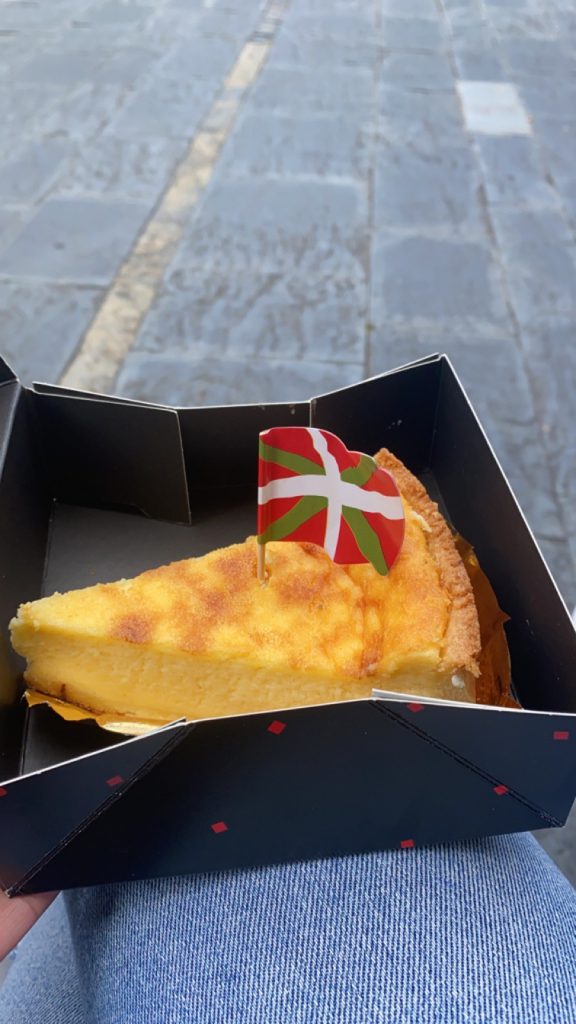Epa! Zermoduz?
That means “What’s up! How are you?” in the Basque language or also known as Euskera. Here in San Sebastian and in a tiny region of southwest France, Basque is the native tongue. One of the oldest spoken languages in Europe, the origins of the Basque language are unclear, which makes it particularly intriguing.
Quick Basque history:
The Basques were mostly able to maintain their customs and laws during the Roman invasion of Northern Spain, as well as during the reign of subsequent invaders throughout history. However, the autonomous Basque country was destroyed by the Spanish government in the 1800s. Later, during the Spanish Civil War, the Basque’s rights were taken away, the language was outlawed, and the Basque city of Guernica was bombed. This led to the emergence of the Basque separatist organization Euskadi Ta Askatasuna (ETA) in 1959. They committed terrorist attacks during their campaign because they desired an independent Basque state. By the time the ETA committed its last violent act in 2010, the Basques had already succeeded in reviving their culture.
The Basque country/people now:
I’ve been in Spain for the past week, and Basque culture can be seen everywhere. The names of many restaurants are in Basque, and they serve Basque cuisine, which I have come to love. I adore Basque cheesecake since I have a huge sweet tooth. A handful of my Spanish professors at Lucunza are Basques, and they all have common Basque names. I’ve discovered that supermarket stores also sell food goods in the Basque language.

I asked the man who led us on the wine-tasting tour at the winery this past Saturday if he spoke Basque, and he responded that it was his first language, and that Spanish was his second. He also revealed to me that he only speaks Basque to his family, which I found to be both fascinating and astonishing. I have also come to learn that children in San Sebastian are being taught Basque in school so that the mother tongue is preserved. It has become quite clear that the Basque people are not gone and will not be going anywhere, their history and legacy will live on for centuries to come.
Learning the basics of the Basque language:
The session 3 group and I met up with Professor Zabalbeascoa and his friend Stuart on 8/7/2023 after our Spanish class at Lucunza. Stuart is from Scotland and has been learning the Basque language for a long time. A little stack of paper with the essential words and phrases in Basque was distributed to everyone by Stuart. Greetings like Kaixo, which means “hello,” Gabon, which means “good evening or good night,” and (Oso) Ondo, which means “very good,” were taught to us. We practiced pronouncing our names, such as Ni Sarai naiz, which translates to “I am Sarai.” You put your name in the middle of this statement rather than the end, which intrigued me!
In addition, Stuart taught us the Basque word “Zuritoa” for tiny beer. This is so because it’s typical in Basque culture to simply spend a short time at a bar, eat some Pintxos, and then move on to the next one. Since going bar to bar is so common in the Basque country, small beer earned its own word in Basque.
There are many different pronunciations of Basque, which is something that is very important to keep in mind when attempting to learn the language. When you encounter a word with a “Z” in Basque, you should pronounce it with a “S” sound. A “Ts” will sound like a regular “T” when you see one, whereas a “Tx” will produce a “Ch” sound.

Final Thoughts:
So far, San Sebastian has been a unique experience for me. While my family is from El Salvador and I grew up listening to my family speak Spanish, the language spoken in San Sebastian is different. Like the rest of Spain, Spanish is spoken by the locals, but what sets San Sebastian apart is that a majority of the locals also speak Basque. Due to the presence of both Spanish and Basque cultures, San Sebastian offers twice as many cultural experiences as other parts of Spain. I wouldn’t have wanted to spend my three weeks anyplace else. Before I depart, I’ll make it a point to place a cheesecake order in Basque!

